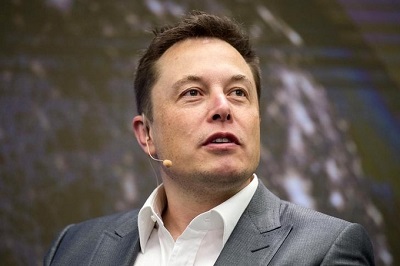San Francisco, (Asian independent) Elon Musk acquired Twitter for $44 billion in October last year after a months-long tumultuous phase.
One year on, controversies associated with the platform (now called X), amid the non-stop spread of disinformation, is far from over.
From a surge in anti-semitic tweets that more than doubled over the months since Musk took charge to the European Commission formally opening a probe into X over spreading of illegal content and disinformation, the Twitter bird is yet to be freed.
On October 26, 2022 as he bought Twitter, Musk arrived at the company’s headquarters in San Francisco carrying a bathroom sink, while sharing a post: “Let that sink in!”
After the acquisition, Musk laid off more than 80 per cent of 7,500-strong Twitter staff, including its Indian-origin CEO Parag Agrawal, and even dissolved the trust and safety council.
Earlier this month, reports surfaced that Agrawal, former policy lead Vijaya Gadde and other executives finally won $1.1 million in legal fees from the Musk-run company.
In November last year, he said that “people have spoken and former US president Donald Trump will be reinstated” on Twitter.
In August this year, Trump signalled his return by posting his mugshot from Fulton County Jail in the US on charges of election interference.
Musk retweeted his post, saying “Next-level”.
In February, amid reports that Twitter was losing $4 million a day, the tech billionaire said that the platform will soon share ad revenue with creators for ads that appear in their reply threads.
The social media platform finally started paying creators in July for a share of the ad revenue they earned from ads served in the replies to their posts to other verified users.
Last month, X CEO Linda Yaccarino revealed that the platform paid nearly $20 million (more than Rs 166 crore) to creators.
In April, Twitter announced it would remove the verification badge from the legacy accounts to promote its Twitter Blue subscription.
It now charges $8 a month from verified users, and is soon launching other paid membership tiers.
In June, Musk created a sensation by posting that he is up for a cage match with Meta founder and CEO Mark Zuckerberg — a fight that never took place.
Zuckerberg later launched a competitor to Twitter called Threads on Instagram.
In July, Twitter announced a name change to X.com, to make the platform an “everything app” from live-streaming events and movies, live sports, digital payments and more.
“Twitter was acquired by X Corp both to ensure freedom of speech and as an accelerant for X, the everything app,” said Musk.
This month, the European Commission opened an investigation into the X owner Musk over an alleged spreading of illegal content and disinformation, in particular, the spreading of terrorist and violent content and hate speech in the wake of an ongoing Israel-Hamas war.
Yaccarino responded, saying the company is actively working with partners, governments, regulators and policymakers to combat misinformation.
Last week, a new study claimed that verified users with Blue badges are the ones spreading the vast majority of misinformation about the Israel-Hamas war on X.
During the first week of the conflict (October 7-14), US-based for-profit organisation NewsGuard analysed the 250 most-engaged posts (likes, reposts, replies, and bookmarks) that promoted one of 10 prominent false or unsubstantiated narratives relating to the war.
The results revealed that 186 out of these 250 posts — 74 per cent — were posted by accounts verified by X.
X Corp lost over half a billion user visits last month, and the platform dropped to seventh place on the global ranking, behind Instagram, according to new SimilarWeb data.








